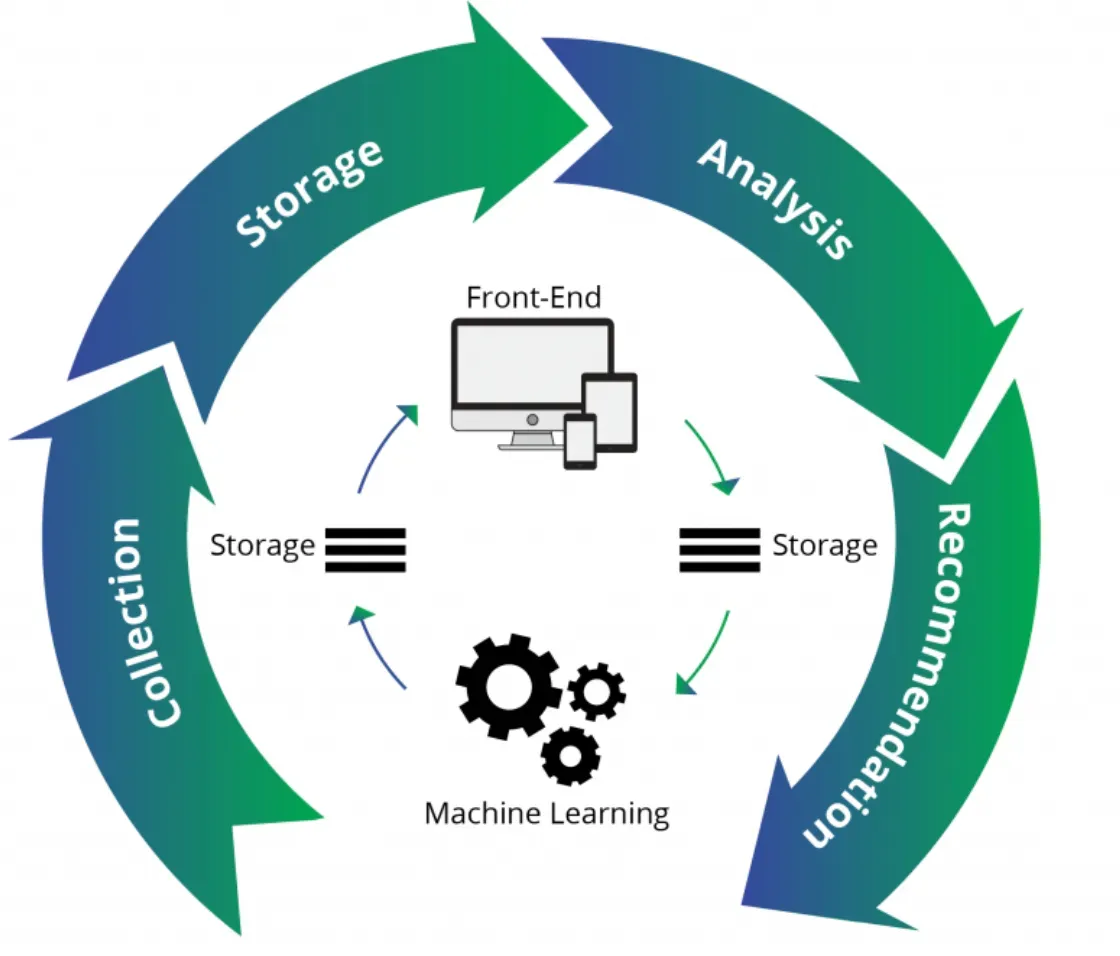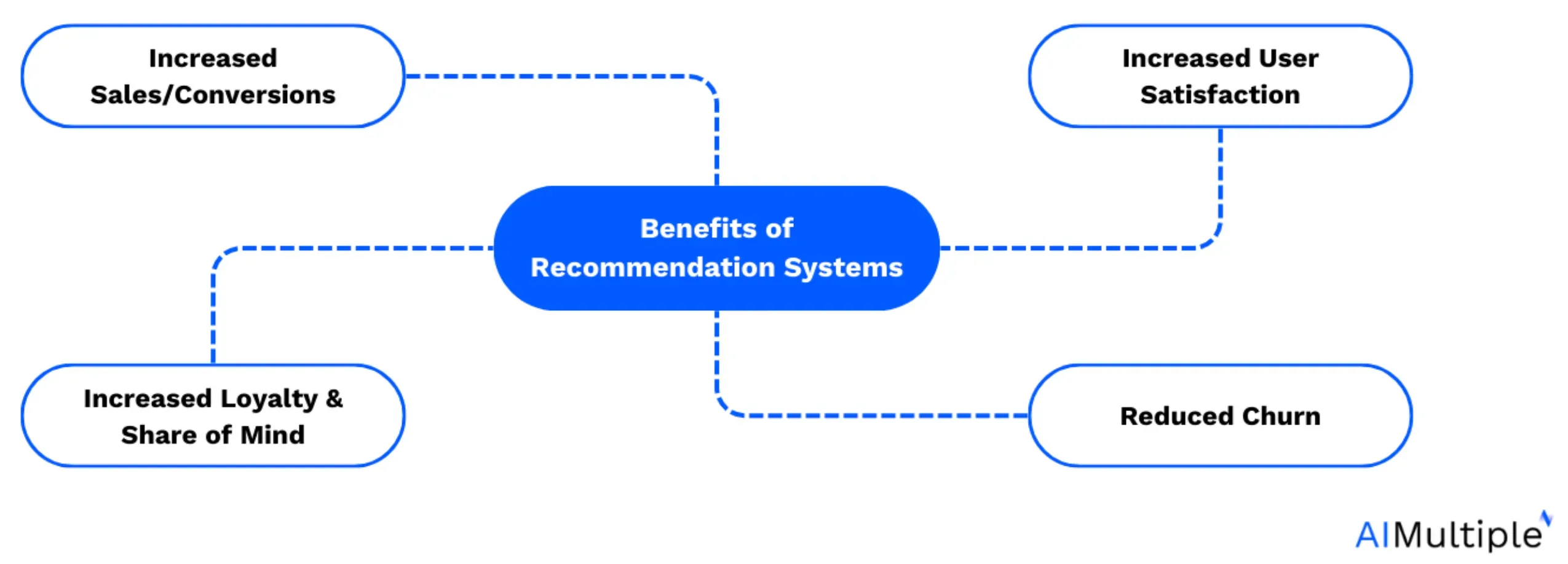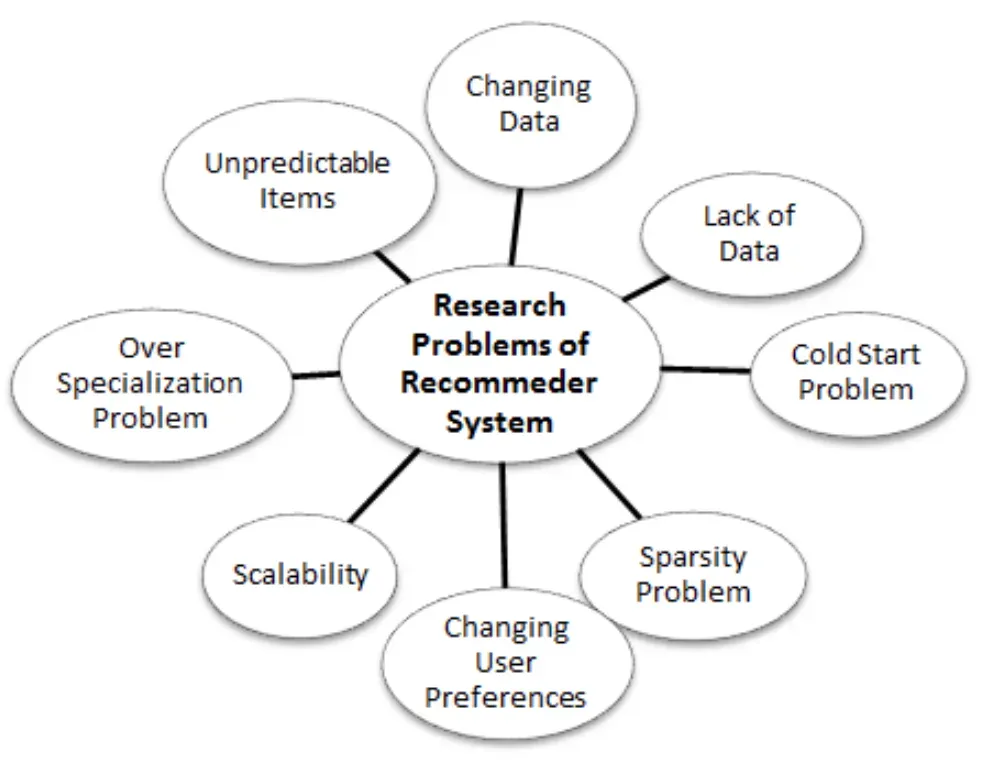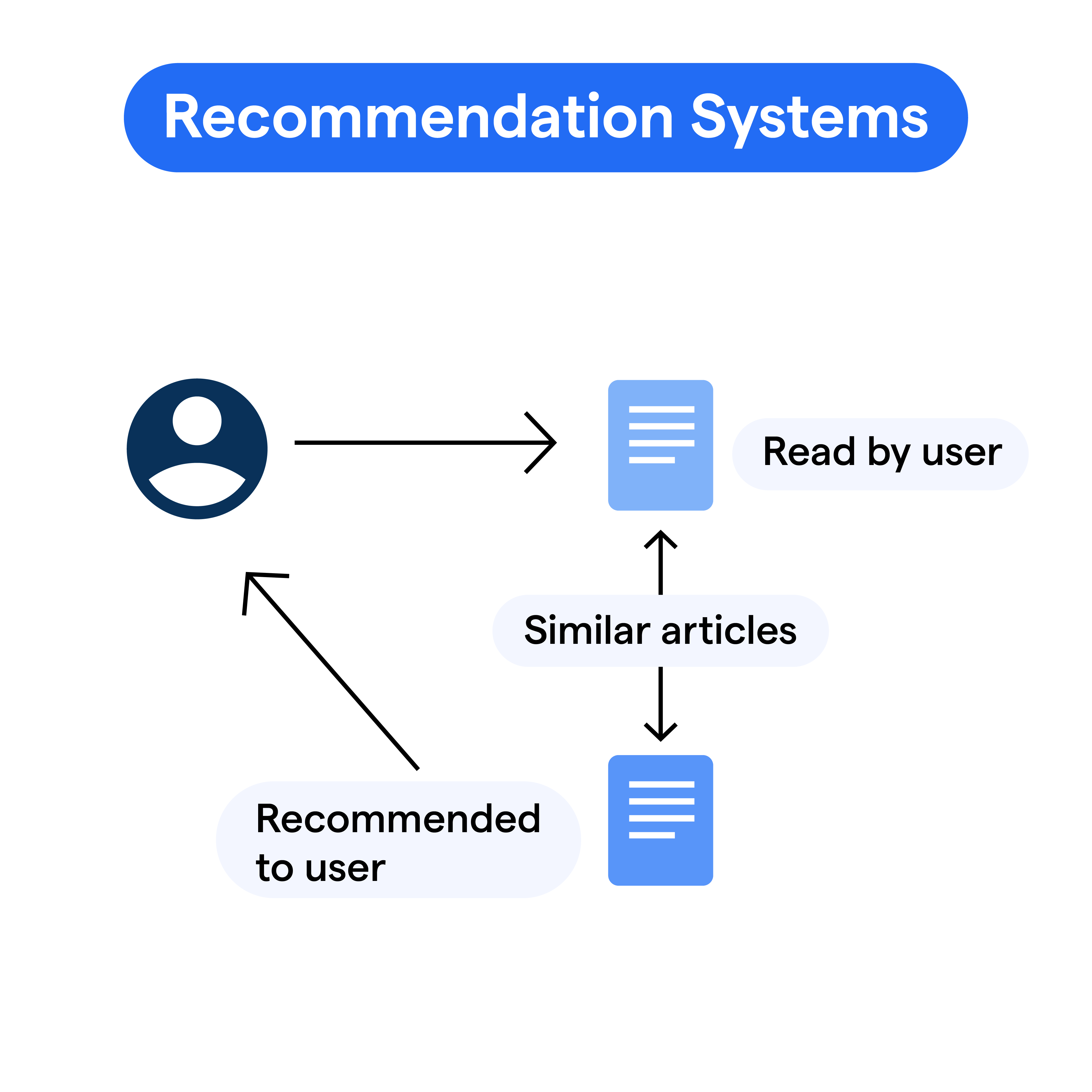What are Recommendation Systems?
Recommendation systems, in the simplest terms, are like your best friends who know what you like, only these friends are algorithms. They predict and suggest items you might enjoy based on your past behavior.
The Mechanism Behind the Curtain
At their core, these systems analyze patterns in your behavior to suggest items you might like. This could be anything from movies on Netflix to products on Amazon.
Types of Recommendation Systems
- Content-based: This type likes to match items by features. Think of it as recommending a spicy movie because you watched a lot of spicy movies before.
- Collaborative filtering: This is when the system thinks, “Hey, these people liked the same thing; they might like other similar things too.”
- Hybrid systems: A mix of both worlds, ensuring a broader range of recommendations.
The Importance of Personalization
The essence of a recommendation system is to serve you what you love on a silver platter, keeping you engaged and satisfied.
The Evolution Over Time
From rudimentary algorithms to sophisticated AI, recommendation systems have evolved, becoming more accurate and personalized, akin to a tailor sewing a custom suit for you.
Why Use Recommendation Systems?
Why invite these digital soothsayers into our lives? Because they make our digital experiences smoother, more personalized, and frankly, they help us discover the gems hidden in the vast ocean of the internet.
Improved User Experience
These systems make sure your digital experience is like walking in a garden designed just for you, where every turn introduces you to something delightful.
Enhanced Engagement and Retention
Just like a chai that keeps you coming back for more, recommendation systems ensure users remain engaged and loyal.
Increased Sales and Conversions
They're not just about improving experience; like a skilled salesman, they subtly nudge users towards making a purchase.
Efficient Content Discovery
In a world overflowing with content, these systems are your personal guides, ensuring you find what you love without the hassle.
Personalization at Scale
They offer a personalized experience to millions simultaneously, imagine having a personal shopper, but in the digital world.
How Do Recommendation Systems Work?
Understanding the wizardry behind the curtain involves delving into data, algorithms, and a bit of AI magic.

Gathering User Data
The foundation of any recommendation system, involves collecting data on your preferences and behaviors.
Analyzing the Data
This is where the system sifts through the data, identifying patterns and preferences specific to you.
Predicting Preferences
Based on past behavior, the system predicts what you might like next.
Making Recommendations
The final step, where the system presents you with a personalized set of recommendations.
Refining Over Time
Like a fine wine, these systems improve with age, learning from your interactions to refine future recommendations.
Who Utilizes Recommendation Systems?
From streaming services to e-commerce giants, these systems are the unsung heroes behind many platforms, ensuring user satisfaction and engagement.
E-commerce Platforms
Think Amazon or Flipkart, where recommendations can guide you to your next favorite purchase.
Streaming Services
Platforms like Netflix or Spotify, where what to watch or listen to next is effortlessly served up.
Social Media Platforms
Facebook, Instagram, and LinkedIn use these systems to curate your feed, showing you content you're more likely to enjoy.
News and Media Outlets
Helping you navigate through the noise to find articles and content aligned with your interests.
Job and Housing Portals
Even platforms like Naukri or MagicBricks use recommendation systems to match you with jobs or homes.
When are Recommendation Systems Used?
There’s a time and place for everything, including when these systems kick into gear, quietly shaping your digital experience.

Upon User Registration
Right from the get-go, these systems start getting to know you, based on initial preferences you provide.
During User Interaction
Every click, watch, or purchase is a clue, helping the system to refine its recommendations.
When Searching for Items
They work in the background, subtly nudging you towards items you might like.
Periodically for Engagement
Ever got an email suggesting something you might like? That's them, trying to re-engage you.
Before You Leave a Platform
Sometimes, as a last attempt to keep you engaged, they might whisper, “Hey, check this out!”
Best Practices in Developing Recommendation Systems
Creating a recommendation system that resonates with users isn’t sorcery, but it does require careful thought and execution.
Ensure Data Privacy
Respect user privacy like it’s your own, ensuring data is collected and utilized ethically.
Balance between Novelty and Familiarity
Offer users a mix of what they love and something new, keeping the experience both comfortable and exciting.
Use a Hybrid Approach
Don’t rely solely on one method; mix and match to provide well-rounded recommendations.
Continuously Evaluate Performance
Keep tabs on how well your system is doing, tweaking it for better accuracy and user satisfaction.
Keep the User in Control
Let users tweak their preferences, ensuring they feel in control of what’s recommended to them.
Challenges Facing Recommendation Systems
Crafting these systems isn’t without its hurdles, ranging from technical challenges to ethical considerations.

Data Privacy Concerns
The biggest elephant in the room, ensuring user data is used responsibly and transparently.
Overcoming Bias
Avoid creating echo chambers where users see only what reinforces their existing beliefs.
Handling Cold Start
Introducing new users or items into the system can be tricky without existing data to lean on.
Maintaining Scalability
As platforms grow, ensuring the system remains efficient and accurate is a constant battle.
Continuous Adaptation
Keeping up with ever-changing user preferences and behaviors is like trying to hit a moving target.
Future Trends in Recommendation Systems
Peering into the crystal ball, several trends are set to shape the future landscape of these systems.
Leveraging AI and Machine Learning
The use of more sophisticated AI models to predict user preferences more accurately.
Emphasis on Contextual Recommendations
Taking into account the context of user interactions to offer even more personalized suggestions.
Ethical and Transparent Systems
A shift towards more ethical algorithms that value user privacy and data transparency.
Integration with Voice and IoT
Imagine your voice assistant or smart home devices making personalized recommendations.
Advances in Content Personalization
Not just what content is recommended but how it’s presented and personalized will see innovation.
Frequently Asked Questions (FAQs)
What's the key difference between content-based and collaborative filtering?
Content-based systems recommend items similar to a user's past preferences, while collaborative filtering leverages preferences of similar users.
How do recommendation systems benefit e-commerce platforms?
They personalize the shopping experience, suggesting relevant products to users, increasing satisfaction and sales.
Are there privacy concerns with recommendation systems?
Yes, they typically collect user data to make predictions, raising potential privacy and data security issues.
Can recommendation systems operate without AI?
While possible, their effectiveness improves dramatically with AI, enabling more accurate and sophisticated recommendation algorithms.
How do recommendation systems handle new users?
This is the "cold start" problem. Systems might use generic recommendations or demographic data to make initial suggestions until the user's preferences are learned.

